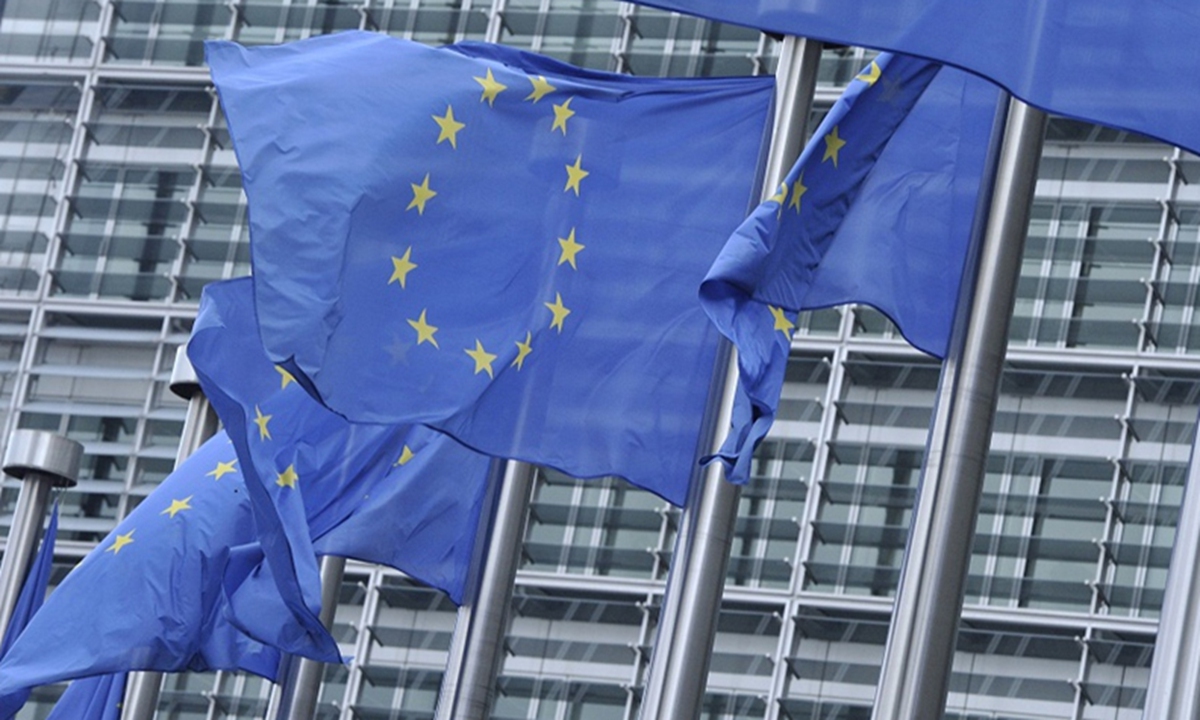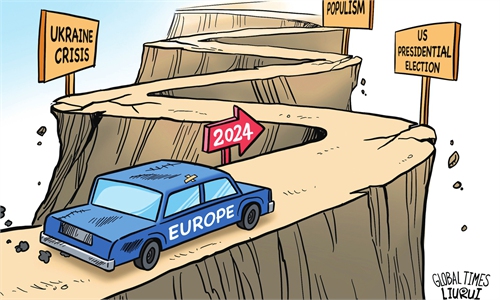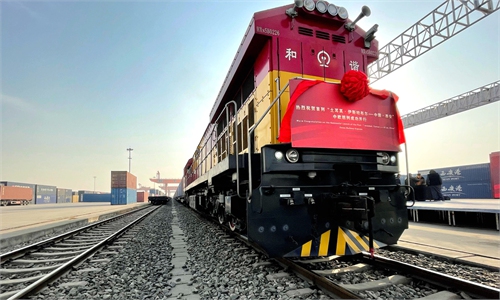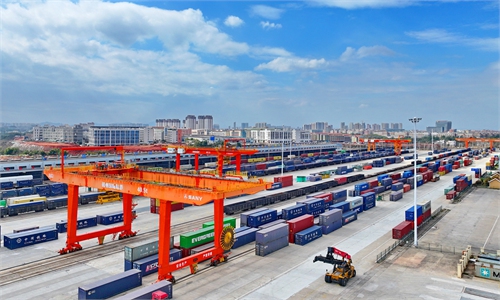
The European Union flags in front of EU headquarters in Brussels, Belgium. Photo: Xinhua
On Monday, France's new Prime Minister Gabriel Attal visited Berlin, Germany, his first trip abroad after taking office. This trip focused on more than just promoting France-Germany relations: The German chancellor's spokesperson said on Friday that the talks would focus on "bilateral, European and international issues, in addition to economic policies."Amid the ongoing Russia-Ukraine conflict, many member states of the European Union (EU) are facing multiple crises, including France and Germany, the two biggest countries in the bloc. In a new round of coopetition, will these two countries join hands and together walk out of the crises they are facing?
In my opinion, many European countries are currently facing three internal problems.
First, there is a crisis about farmers and agriculture in Europe. A peasant movement is surging from France and Germany to Belgium. Farmers in a number of EU member states have blocked the road in a form of protest against the EU's excessively restrictive regulations on agriculture and unfair competition from abroad.
If we look deeper, the anger of these farmers across Europe stems from feeling that their survival is threatened by the rising production costs and declining incomes due to the deteriorated international geopolitical and economic trade environment.
Moreover, this round of farmer protests in Europe reflects that European agriculture, as a long-established industry, is facing difficult industrial transformation amid the green development and challenges from competitors, such as those in South America and Eastern Europe. Both regions have advantages regarding quantity, quality and price of the products.
Second, there is a crisis about the energy and inflation in Europe. Major countries on the continent are not key producers of energy sources, including oil and natural gas. Instead, energy is rather the EU's "soft underbelly." This might not be a big problem in normal times, but once a state of emergency, such as the Russia-Ukraine conflict, occurs, this weakness of the EU will be fully exposed.
Third, there is an increasingly serious partisan dispute and political fragmentation crisis in EU countries. In particular, the phenomenon of rising right-wing forces is becoming increasingly prominent in Germany, with the far-right force growing stronger. This has had a significant impact on the existing political spectrum in Germany.
As for external threats, there are two: the ongoing Russia-Ukraine conflict and the Gaza conflicts.
The EU is a model of world's first attempt to transform a bloc of separate sovereign states into a union, confederation, and then federation through peaceful means. Only major crises, such as the European debt crisis more than a decade ago, the current geopolitical crisis, internal and external threats can consolidate dozens of highly heterogeneous sovereign state and push for further transformation. For instance, amid the European debt crisis, some severely affected Southern European and Eastern European countries agreed to partially transfer their fiscal sovereignty, especially budgetary sovereignty, to the EU. This, to some extent, has enhanced the fiscal and financial integration of the bloc.
Currently, Germany and France, the two "backbones" of the EU, are financially constrained after experiencing the COVID-19 pandemic and the global economic recession. However, when faced with the problem of Ukraine aid, a difficult issue that people across Europe believe to be "a matter of life and death," all 27 EU member states recently unanimously agreed on a 50 billion euros ($54 billion) additional support package for Ukraine.
This can also be seen as EU's temporary resolution of an external crisis challenge under the EU's unique political structure. Yet, it is a significant test to the bloc on how it can better solve the current crises it faces, such as those in agriculture, energy and inflation, as well as the increasingly serious partisan disputes and political fragmentation.
If Attal's visit to Berlin can truly put aside the long history of competition between France and Germany, amplify the cooperation between the two, and come up with practical solutions to the current crises, it is believed that the "Franco-German axis" can still move forward on the bumpy ride of coopetition.
The author is the director of the French Economic Studies Center at the University of International Business and Economics in Beijing. opinion@globaltimes.com.cn



